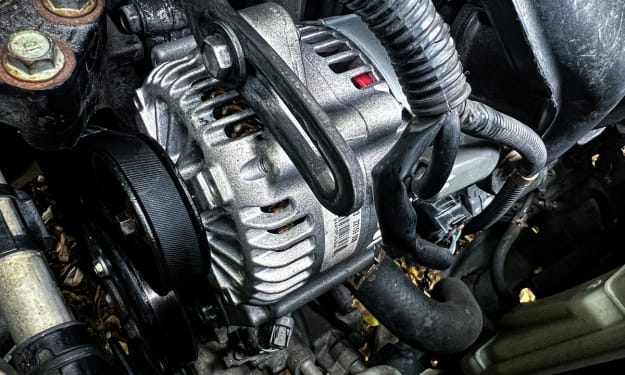The Ride-Sharing Revolution: Examining the Impact on the Automotive Industry
Detailed Insider Report!

Ride-sharing has revolutionized the way people think about transportation. With the rise of companies like Uber and Lyft, more and more people are opting for rideshare services instead of owning their own vehicles. The popularity of ride-sharing has had a profound impact on the automotive industry, changing the way vehicles are manufactured, sold, and used.
Decreased Demand for New Vehicles: One of the most significant impacts of ride-sharing on the automotive industry has been a decrease in demand for new vehicles. With more people using ride-sharing services, there is less need for individuals to purchase their own vehicles. This has led to a decrease in sales of new vehicles and put pressure on automakers to find new ways to sell cars.
Shift in Automaker Priorities: The decrease in demand for new vehicles has forced automakers to shift their priorities. Rather than focusing solely on producing cars for individual owners, automakers are now looking to cater to the ride-sharing market. This has led to the development of new vehicle models and technologies, such as electric and autonomous vehicles, that are better suited for ride-sharing.
Changes in Vehicle Design: Ride-sharing has also had an impact on the design of vehicles. Cars used for ride-sharing need to be more durable and efficient than personal vehicles, as they are in use for much longer periods of time. This has led to a focus on improving fuel efficiency and reducing maintenance costs, as well as making vehicles more comfortable for passengers.
Increased Focus on Shared Mobility: The rise of ride-sharing has also led to an increased focus on shared mobility. Companies are looking to create new, innovative solutions that make it easier and more convenient for people to share vehicles. This has led to the development of car-sharing and ride-hailing services, as well as the creation of new business models that allow for the sharing of electric and autonomous vehicles.
Challenges for Traditional Car Rental Companies: The popularity of ride-sharing has also had an impact on traditional car rental companies. With more people choosing ride-sharing services over rental cars, car rental companies have been forced to reevaluate their business models and find new ways to stay competitive. This has led to a focus on offering premium services, such as luxury vehicles and airport pick-up, to attract customers.
Impact on Employment : One of the most significant impacts of ride-sharing on the automotive industry is the effect on employment. With the growth of ride-sharing services, there has been an increase in the number of independent contractors, who drive for companies like Uber and Lyft. While this has created new job opportunities for drivers, it has also led to a decline in traditional taxi and car rental jobs.
Environmental Concerns: Ride-sharing has the potential to have a positive impact on the environment by reducing the number of cars on the road. However, the environmental impact of ride-sharing is not as clear cut. Increased use of ride-sharing services has led to an increase in the number of cars on the road, as ride-sharing vehicles often have longer usage times than personal vehicles. In addition, the majority of ride-sharing vehicles are still powered by fossil fuels, leading to increased emissions.
Legal and Regulatory Challenges: The rise of ride-sharing has also brought with it legal and regulatory challenges. Companies like Uber and Lyft have faced challenges related to worker classification, safety, and insurance. Governments around the world are grappling with how to regulate ride-sharing services and ensure that they are safe and secure for passengers.
Future of the Automotive Industry: The impact of ride-sharing on the automotive industry is complex and far-reaching. While it has had a negative impact on traditional car rental companies and created employment challenges, it has also led to new opportunities for automakers and the development of new technologies. As ride-sharing continues to grow in popularity, it is likely that it will continue to shape the future of the automotive industry.
In conclusion, the rise of ride-sharing has had a significant impact on the automotive industry, changing the way vehicles are manufactured, sold, and used. From decreased demand for new vehicles to environmental concerns and legal and regulatory challenges, ride-sharing has forced the industry to adapt and find new ways to remain relevant in an ever-changing market. Despite the challenges, the popularity of ride-sharing is here to stay and will continue to shape the future of the automotive industry.
About the Creator
AutoTech Insider
Entrepreneur | Automotive Expert | RPA Developer
Enjoyed the story? Support the Creator.
Subscribe for free to receive all their stories in your feed. You could also pledge your support or give them a one-off tip, letting them know you appreciate their work.





Comments
There are no comments for this story
Be the first to respond and start the conversation.